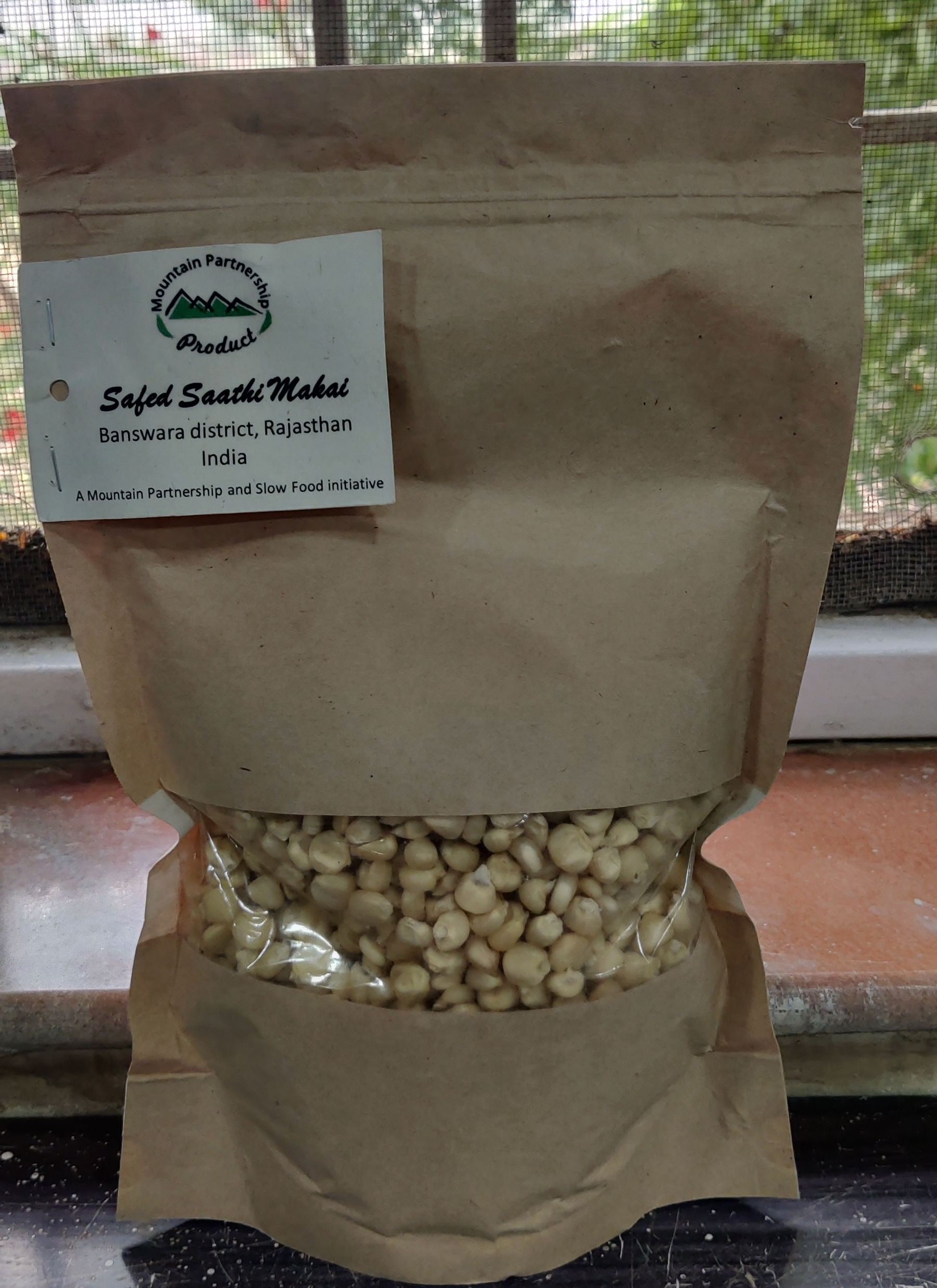 | Safed Saathi MakaiAanandpuri and Kushalgargh India |
Safed saathi makai, or white corn, is one of the most important cereal food crops cultivated in Banswara district, known as a “green paradise” in the Rajasthan state, for its lush and magnificent vegetation. Farmers cultivate this corn with traditional practices, intercropping with pulses and legumes. The corn is well adapted to the agroclimatic conditions of the mountainous region and it is tolerant to drought periods.
Tradition
Banswara district and surrounding region witnessed the corn cultivation with traditional organic methods way back to generations. Currently, the Participatory Guarantee Scheme (PGS) is recognizing farmers efforts in maintaining the ecosystem. Women are involved in most farming interventions and in preparing traditional recipes using this corn flour, such as roti, pania and raab.
Producers
The Saathi corn is cultivated during the Kharif (monsoon) season, between June and September, and it has been consumed for generations. The producers, gathered in the Vaagdhara Tribal Food and Grain Initiative Procedure Company Limited, belong to the Bheel ethnic group, who have a rich and unique culture, expressed for example in traditional folk dances, such as the Ghoomar dance, the symbol of womanhood.
Processing
Producers use locally available organic seeds and fertilizers. Saathi corn is largely grown as the main crop under mixed cropping with legumes/pulses, such as pigeon pea, veladi black gram, sesame, green gram and others. Families help each other by organizing a harvesting day called Halma. The seeds are shelled out of the cobs and after drying are stored in a locally made storage pot, made of wood, mud and cow dung, called Kabla.
Further information